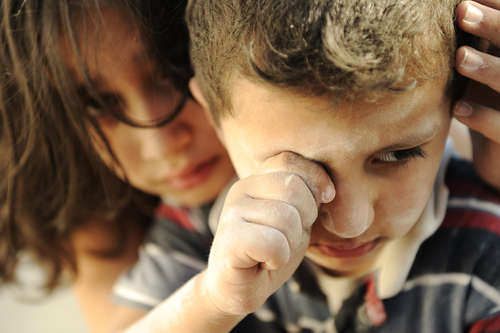It’s a small line in the state budget, but an additional $4.2 million earmarked to pay for unexpected foster home placements represents a huge step in the wrong direction.
It means that after a decade of progress in which Maine has become a national leader in keeping children out of the foster care system and, when necessary, placing them with family members, we are losing ground.
This trend comes with a price tag far greater than what’s in the budget.
Before a child ends up in a foster home, he has to suffer significant trauma. The stress that comes from being taken from home and placed with strangers has lifelong impacts.
It can affect the child’s ability to learn, his social relationships and the kinds of jobs that he will be able to hold as an adult. Helping children though the key stages of their development in loving and supportive environments is crucial in the kind of lives they will lead.
The state’s Department of Health and Human Services reports that it anticipates 500 more children placed in foster homes than it had budgeted for in 2011. The agency blames the increase on increases in drug use, particularly the synthetic hallucinogenic known as bath salts, but a failure of state policy shares the blame.
Drugs are a symptom of the problem. This is not something that can be blamed on parents alone.
Maine is slowly recovering from a recession that stripped 50,000 jobs out of our economy. In response to a crash in income and sales tax revenue, the state has cut programs that help poor and near-poor families, including Head Start early childhood education, child care credits and health insurance for families above the poverty line.
These are the kinds of programs that help keep families together during tough economic times. When a mother loses a job or even just hours and income from cutbacks at work at the same time that she has to pay more for day care and can’t afford to see a doctor, that family is on the verge of becoming homeless.
Those are the families that need help, not lectures about personal responsibility. The foster care numbers don’t reflect an epidemic of parents making bad choices: They show the consequences of what happens when a government turns its back on people in need.
Send questions/comments to the editors.



Success. Please wait for the page to reload. If the page does not reload within 5 seconds, please refresh the page.
Enter your email and password to access comments.
Hi, to comment on stories you must . This profile is in addition to your subscription and website login.
Already have a commenting profile? .
Invalid username/password.
Please check your email to confirm and complete your registration.
Only subscribers are eligible to post comments. Please subscribe or login first for digital access. Here’s why.
Use the form below to reset your password. When you've submitted your account email, we will send an email with a reset code.